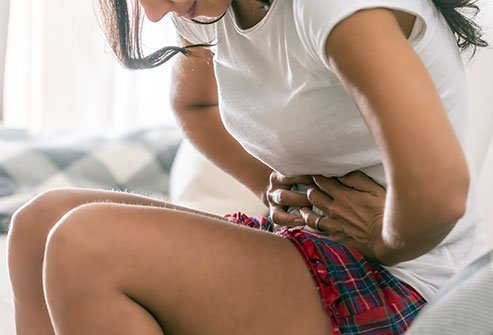How Long Does an Ulcerative Colitis Flare-Up Last?
Ulcerative colitis (UC) is a chronic disease that causes inflammation and ulcers in the inner lining of the large intestine and rectum. If you have UC, you may experience repeated cycles of flare-ups (symptomatic periods) and remissions (asymptomatic periods).
A flare-up can last a few days or a few weeks and then be followed by a remission that lasts for months or even years. How long a flare-up lasts depends on factors such as:
- Severity of the disease (mild, moderate or severe)
- Triggers such as stress, infection, diet changes etc.
- Medication compliance (whether you’re taking your medications as prescribed)
While there is no cure for UC, several treatment options and lifestyle modifications can help reduce symptoms or prevent flare-ups.
What causes ulcerative colitis?
The exact cause of ulcerative colitis is unknown. Factors that can contribute to the disease include:
- Genetics: People who have first-degree relatives with UC are at increased risk of UC.
- Immune response: Autoimmune disorders can cause your immune system to attack the cells in your body instead of defending them.
- Environmental factors:
- Diet (high levels of fat, sulfur and meat)
- Certain medications
- Alcohol and substance abuse
- Psychological stress
- Consumption of milk may exacerbate the disease if you are lactose-intolerant.
- Medications: Nonsteroidal anti-inflammatory drugs (NSAIDs) increase the risk of UC.
What are the signs and symptoms of ulcerative colitis?
UC can cause the following symptoms:
- Rectal bleeding
- Frequent stools (more than 4 a day)
- Mucous discharge from the rectum
- Tenesmus (feeling you need to have a bowel movement even if you already had one)
- Abdominal distention/bloating
- Lower abdominal pain and cramps
- Severe diarrhea and cramps
- Dehydration (in cases of severe diarrhea)
- Fever
- Increased heart rate
- Weight loss
UC is also linked to other symptoms like inflammation of the eyes, joints, skin and lungs.
How is ulcerative colitis classified?
UC is classified as mild, moderate or severe:
- Mild: Rectal bleeding and fewer than 4 bowel movements per day
- Moderate: Rectal bleeding with more than 4 bowel movements per day
- Severe: Rectal bleeding with more than 4 bowel movements per day and systemic illness with protein loss
How is ulcerative colitis treated?
Treatment for UC depends on the severity of the disease and often involves both medications and lifestyle modifications.
Medications
Most people require a combination of medications to suppress and/or modulate the immune system:
- Anti-inflammatory drugs: Anti-inflammatory drugs such as 5-aminosalicylates (sulfasalazine, balsalazide etc.) and corticosteroids (prednisolone, budesonide etc.) suppress the cells that cause inflammation. These drugs are usually the first step in the treatment of UC and are well tolerated by most people.
- Immune system suppressors: Immunosuppressant drugs work by suppressing the immune system response that stimulates the inflammation process. Examples include Azasan and Imuran (Azathioprine); Purinethol and Purixan (Mercaptopurine); Gengraf, Neoral and Sandimmune (Cyclosporine) and Xeljanz (Tofacitinib).
- Biologics (monoclonal antibodies): Biologics target and neutralize proteins produced by the immune system. Examples include Remicade (Infliximab), Humira (Adalimumab) and Simponi (Golimumab). Entyvio (Vedolizumab) is a type of biologic that works by blocking the inflammatory cells from reaching certain parts of the body, and can be used for people who can’t tolerate other biologics.
- Anti-diarrheal medications: Your doctor may recommend anti-diarrheal medications such as Imodium (Loperamide) for severe diarrhea. You should avoid taking over-the-counter (OTC) anti-diarrheal medications without consulting your doctor, because they can increase the risk of toxic megacolon (an enlarged colon).
- Painkillers: Tylenol (acetaminophen) is safe to use for pain relief. Talk to your doctor before taking other OTC pain medications.
- Antispasmodic medications: Antispasmodic medications can help reduce cramps.
- Nutritional supplements: Iron supplements and vitamin D can help with anemia (iron deficiency) caused by chronic intestinal bleeding.
Surgery
If you have stopped responding to medications or they’re just not effective anymore, surgery is an option. You can undergo a proctocolectomy, which removes the colon and rectum, followed by reconstructive surgery.
Lifestyle and dietary modifications
Managing stress and emotions is crucial to preventing and decreasing flare-ups. Regular exercise and eating a healthy diet are important as well. Your doctor may encourage you to follow a diet that is low in fat and has moderate amounts of soluble fiber and vitamins.
What foods are safe for people with ulcerative colitis?
Foods that are usually tolerated well by people with UC include:
- Breads, noodles and pastas made from refined white flour
- Boiled white rice
- Crackers and cereals made from white flour
- Cooked fruits
- Fruits without peels and seeds
- Cooked vegetables without skins and seeds
- Pureed vegetables and vegetable soups
- Soft, tender meats without skin
- Fish
- Nut butters
- Oils like coconut oil or olive oil

